8 Common Reasons Why Children Lie
Children are capable of lying from a very early age, usually around the 3-year-old mark. The reasons why a child decides to lie, whether consciously or otherwise, can be quite varied, but the fact remains that lying is a common practice among children.
5-Minute Crafts has created a list detailing the reasons that make children tell lies and the situations where children may resort to saying something that is not true.
❗ Important: If you’re dealing with a child who is lying, it’s important to not call them a liar or label them as such. Doing so is detrimental to their development and it might end up reinforcing a pattern where lies become more common.
1. Children lie to test out a new behavior and to see what happens.
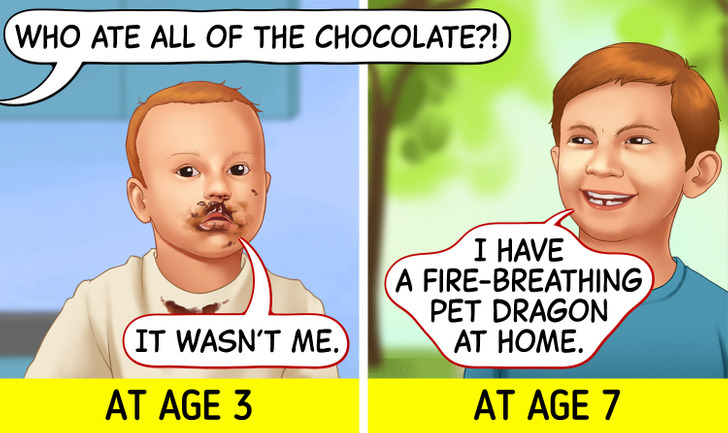
If lying is a novel occurrence in a child, chances are this is just something they have discovered recently and are trying it out to see what happens.
When children are around the age of 3, their motivation for not telling the truth is mostly to protect themselves in situations where adults are upset or use an angry tone with them when asking a question. By the time they’re 7, their fledging imagination is behind many of their lies, but children don’t fully understand what it means to lie or how to do it intentionally until they’re around the age of 10.
2. Children have learned that behavior from you or other adults.
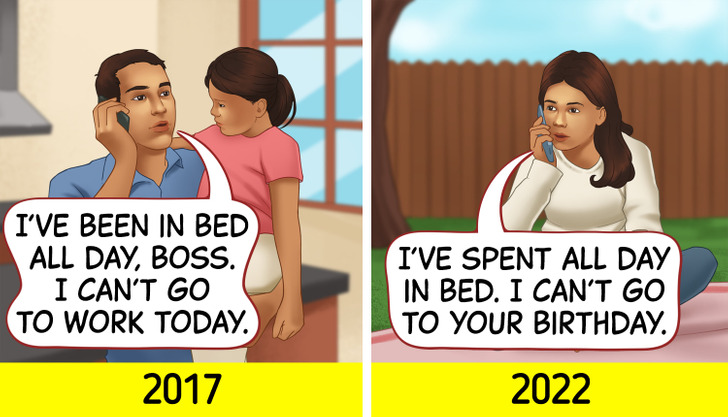
One of the reasons why children lie at the beginning is simply because they are replicating behaviors that they have witnessed at home. Whether it’s you or another adult, children are bound to be exposed to lies—from hearing a parent calling in sick from work when they are actually healthy to seeing characters in cartoons and movies lying, often without harsh consequences.
What’s more, children are sometimes inadvertently encouraged to lie. Before they’ve discovered or mastered lying, children may be too honest, which can be troublesome and is often stifled, like when they say something along the lines of, “My mom said you looked ugly the other day!”. Children are just starting to pick up on complex social norms, so being encouraged to lie in a certain context may also tell them that it’s okay to lie in other situations.
3. Children tell white lies.
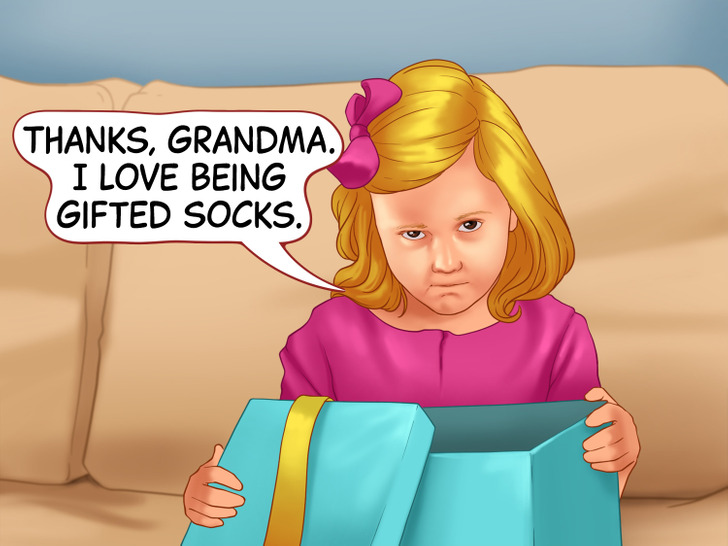
Another situation where kids are inadvertently encouraged to lie is when they start mastering the concept of the white lie—a lie that is told as a way to spare someone’s feelings.
We use and witness people using white lies all the time, such as when we give an insincere compliment to someone we care about, or when we lie out of politeness when the truth is too harsh. The same situation applies for children, who may start to tell white lies at around age 6.
4. Children lie to avoid trouble.
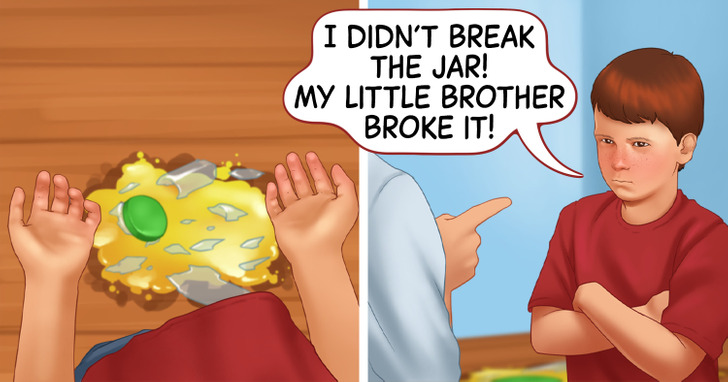
When a child first starts to lie, at about 3 years old, the lies often revolve around denying their own misbehavior. Even when caught red-handed, children may still decide to lie as a way to avoid negative consequences.
The fact that children sometimes commit to a lie, even when there’s clear evidence that supports what actually happened, likely has to do with the fact that children don’t have another way of solving a conflict at that stage.
5. Children lie to get what they want.
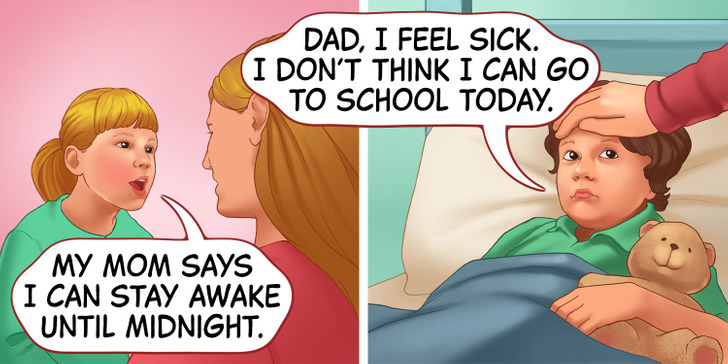
A common thing that may happen is that a child may use lies to make a specific situation work in their favor. Like when a kid says, “My mom lets me eat 5 cookies every day” to his babysitter when in reality she’s only allowed to eat cookies in the weekend. On the flip side, children also use lies as a way to get out of things they don’t want to do.
One of the things that a child might want is attention, especially if the lies they are telling seem to not make much sense or are inconsequential. This kind of behavior is normal and is also part of the process of them making sense of the world they live in.
6. Children often tell tall tales.

After the age of 3, children start developing a vivid imagination, which might lead to them constantly blurring the lines between what’s real and what isn’t. This is why kids sometimes tell lies that include fantastic elements, like, “My cat told me all about his family. Do you want to listen?” They’re not lying to get something out of it, they are expressing their imagination.
These fantastic stories are known as tall tales, and it’s important to not treat them as lies, as they are the product of a child’s budding imagination rather than a deliberate attempt at twisting the truth. Instead, you can help your children separate truth from fiction, encouraging their imagination in the process.
7. Children lie as a way to make themselves look cooler.

Sometimes, what’s underneath a lie is the need to impress your peers. The same happens with kids, who may lie to their peers or to an adult in an attempt to impress them and get their approval—typically by means of exaggerating the truth or fabricating a story that paints them in a positive light.
A reason why they would want to impress their peers is that it allows them to be perceived as cool, which in turn helps them fit in. This may be particularly true for children who have self-esteem issues and lack the confidence to attempt to fit in with their social circles.
8. Children lie out of impulsivity.
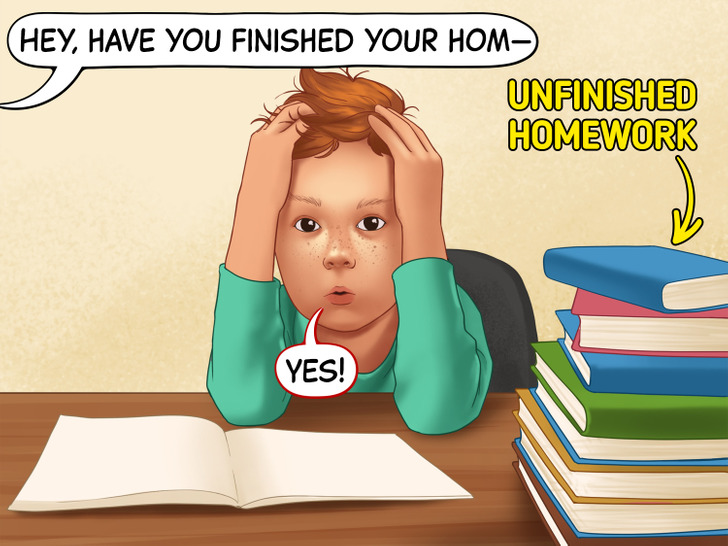
Sometimes, there’s no intent behind a child’s lie. It may be that a kid tells a lie simply because they tend to speak before they think—turning lying into an impulsive behavior. This is especially the case for children who have ADHD, as they lack the neurotransmitters needed to fully control impulsivity. This lack of control accounts for why a child could end up lying even when they don’t really mean to.
In situations like these, it’s important to give kids some extra time to think. This could allow kids to properly think about their answers before they speak, giving them a better chance at beating impulsivity.